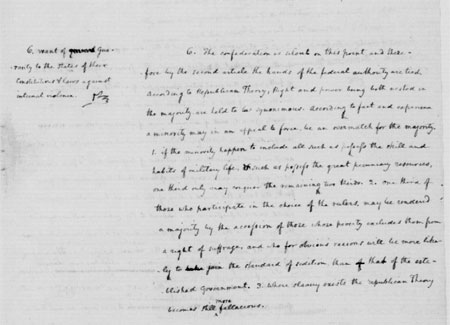Timely Connections: James Madison & Slavery
In an opinion piece for the New York Times, Noah Feldman, a Harvard law professor and the author of the book The Three Lives of James Madison: Genius, Partisan, President, discusses the dichotomies between Madison’s moral views of slavery and his actions. Delving into the past, he contends, can provide us with lessons in racism for today.
The tension between Madison’s aspirational beliefs and his highly constrained actions continues to be America’s own tension. Like Madison, contemporary United States society rejects racial inequality in principle. But also like Madison, a majority of Americans — as reflected in our democratic institutions — are ultimately unwilling or unable to make the costly changes that would be necessary to achieve equality in practice. . . .
Our founders can serve as important role models for us — provided we try to learn from their mistakes and flaws as well as their successes and virtues.
What can you learn by digging into primary sources from the past? How can this learning give you new perspectives about the hard history of slavery in the United States and what it means today?
Primary sources
- James Madison correspondence related to slavery
- The Constitution a pro-slavery compact; or, Extracts from the Madison papers, etc. selected by Wendell Phillips 1856
- Mysteries of Madison’s Notes of the Constitutional Convention streaming webcast (search the transcript for mentions of slavery)
Contemporary texts
- James Madison’s Lessons in Racism New York Times October 28, 2017
- Why Schools Fail To Teach Slavery’s ‘Hard History’ NPR Ed February 4, 2018
- Study Reveals Deep Shortcomings With How Schools Teach America’s History of Slavery Smithsonian February 7, 2018
- Teaching Hard History Southern Poverty Law Center 2018
Related resources

